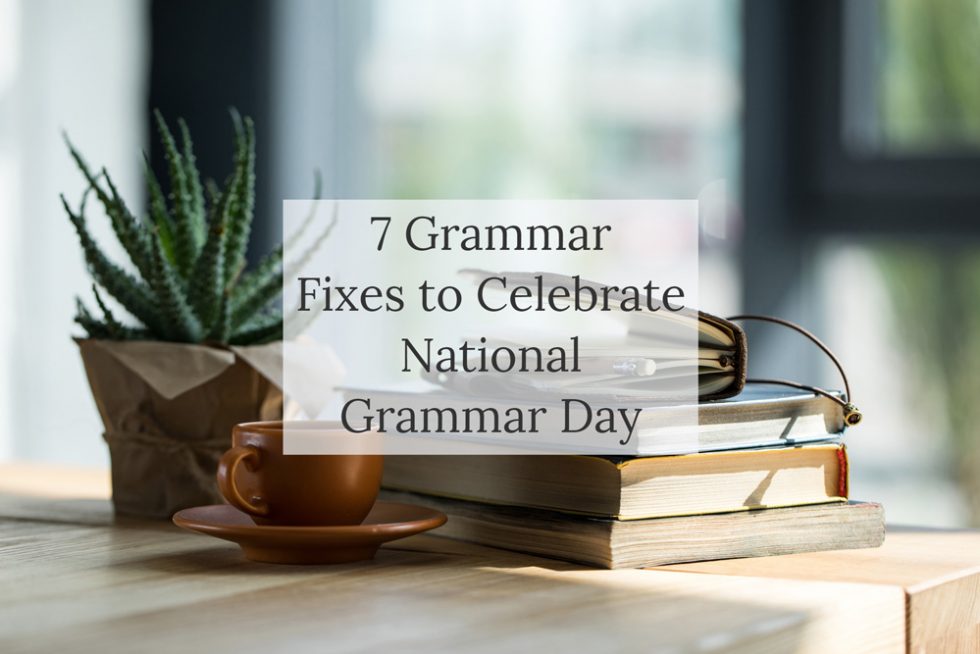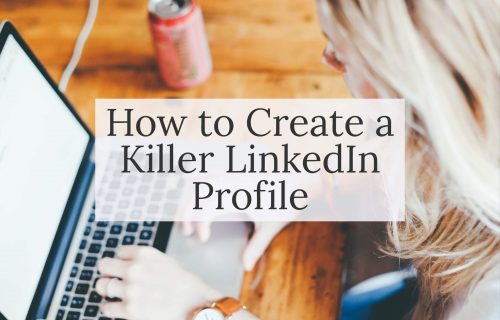
7 Grammar Fixes to Celebrate National Grammar Day
Attention grammar enthusiasts! Did you know we have our own special day?
That’s right. March 4 is National Grammar Day. It’s a day when we can take pleasure in parallel sentence structures, marvel at the utility of semicolons, and frown at the over-played Oxford comma debate.
While National Grammar Day is technically an American event, it’s gaining traction north of the border. And I’m excited about this! Grammar is at the core of everything I do and I love any excuse to celebrate language!
In honour of National Grammar Day, I’ve rounded up 7 common grammar errors and fixes. How do you stack up? Are you guilty of these slips, or do you have a keen eye for language?
Here they are:
1. Could have/should have/would have
It’s could have, not could of; would have, not would of; and should have, not should of. This mistake is commonly made because of how the words sound when spoken aloud. The less formal alternative is their contractions: could’ve, would’ve and should’ve.
2. Fewer versus less
While these words are often used interchangeably, the correct way to make use of them is to choose fewer when you can count items individually (e.g., there are fewer grains of sand), and less when you can’t (e.g., there is less sand).
3. Who versus whom
This one seems tricky but is quite simple when you remember the rule: who replaces he/she and whom replaces him/her. For instance: “Who was invited? She was invited” versus “Whom shall I invite? I’ll invite him.”
4. i.e. versus e.g.
These common abbreviations come from the Latin words “id est” and “exempli gratia” and are often confused. In English, i.e. means in other words whereas e.g. means for example.
5. Lay, Laid, Lie
This is a tricky one. Laid is the past tense of lay when there is an object at play, while lay is the past tense of lie when an object is missing. Confused? Let’s look at some examples:
Lay and laid:
- I lay the pen on the table.
- I laid the pen on the table 20 minutes ago.
Lie and lay:
- He lies on the bed and takes a nap.
- He lay on the bed and took a nap.
6. Shone versus Shined
This one has a less decided answer but, again, it comes down to whether or not a verb has an object. When an object is present, shined should be used (e.g., The man shined his shoes); however, when there is no object, shone is the way to go (e.g., The moon shone brightly).
7. Comma Splice
A comma splice occurs when a comma inappropriately joins two independent clauses. An example of a common splice is: I am hungry, I haven’t eaten anything since breakfast. The way to fix this punctuation issue is to break the clauses into two sentences separated by a period, or to replace the comma with a semicolon or a conjunction. For instance:
- I am hungry. I haven’t eaten in hours.
- I am hungry; I haven’t eaten in hours.
- I am hungry because I haven’t eaten in hours.
With these grammar fixes under your belt, you’ll be all set for National Grammar Day.
Want to learn more? Check out Stop Ruining Your Great Emails with Terrible Grammar!




Add A Comment
You must be logged in to post a comment.